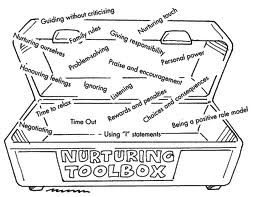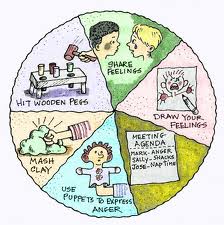Blog #4
Vocabulary/Concept Vitalizer
Pages 86-126
There weren't too many unfamiliar terms in this weeks readings, so I chose some that I thought best describe what was discussed.
Nutrition: The act or process of nourishing or being nourished; specifically : the sum of the processes by which an animal or plant takes in and utilizes food substances
Page 89 states: "Brain research has taught us that what children eat profoundly affects their ability to learn and behave."
Aggression: Hostile, injurious, or destructive behavior or outlook especially when caused by frustration.
Pages 92-93 discuss how to deal with aggressive behavior in the classroom:
"One of the primary areas of difficulty in the preschool and kindergarten classroom is aggressive behavior, which is inspired a great deal of medication use. It has also generated debate among brain theorists and gender watchers."
The question still is, "Where do we draw the line with our kids- how much aggression is OK, and how do we handle what isn't?"
Nurturance: Affectionate care and attention.
Page 95 explains about aggression nurturance: " Aggression nurturance is the term I use for nurturance that involves aggression activities, such as aggressive physical touch, competitive games, and aggressive nonverbal gestures. Boys tend to practice more aggressive nurtrance techniques than girls, and girls more empathy nurturance than boys, but these general trends indicate no normality or "better" behavior; they simply indicate trends in gender difference."
"When a teacher or parent laments that some of the children- especially boys- relate by bumping, prodding, and pushing each other we might recast a lot of the behavior this way: "Wow, look at how those kids are nurturing each other by bumping, prodding, and pushing." If we look closely, we notice that a lot of what they are doing is indeed nurturing activity. They are buildin strength, focus, attentiveness, and hierarchy through these actions. Their use of this nurturance style increases into elementary school, and then when hormones hit especially testosterone- it soars toward a high peak in the middle teens and into twenties."
Discipline: training that corrects, molds, or perfects the mental faculties, or moral character.
a : control gained by enforcing obedience or order
b : orderly or prescribed conduct or pattern of behavior
c : self-control
d : a rule or system of rules governing conduct or activity
Page 99 explains discipline techniques: "Doing the right thing and training students in handling their own aggression is very much the goal of a classroom discipline system."
"One key to improving discipline is the presence of older people."
"The outdoor classroom" (definition from Boys and Girls learn Differently): the grounds, garden, play area, and other nature areas- to help not only with stimulating the learning but also with handling young children's behavioral nuances.
Page 102 discusses the positives of an outdoor classroom: "The more power the child feels, the less we find him misbehaving."
"The outdoor classroom is as important as the indoor, especially for younger children. It is their world of play, fantasy, and spiritual connection with the mysteries of nature and an essential component of the ultimate classroom."
These definitions were found in the Merriam-Webster Online Dictionary






Suzanne C.
ReplyDeleteResponse to Alison's Blog #4
When looking at the picture of the "Nurturing Toolbox" a few items caught my eye. I question the inclusion of ignoring and time out. I can see why these two things might be included, but I think that if they are not carried out in a certain way they can not be considered nurturing.
Helping a child to learn to ignore someone that is purposefully trying to get them to react could be helpful, but I think even adults have trouble with this so we should consider if a child is developmentally ready for it.
In looking at ignoring in terms of an adult ignoring a child this can work so that a child stops a behavior because they find they aren't getting the desired response. However, as educators I think we need to be careful not to use ignoring as a crutch and do it simply because it's easier. We need to fully look at a situation in terms of development, brain differences, family background, etc., and then come up with a plan of action. I feel that sometimes by ignoring a child or just putting them in time out and not taking the time to find the root of the problem or to model a particular behavior like expressing feelings, we actually contribute to more problems down the road.